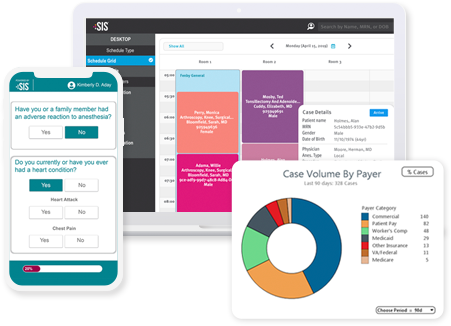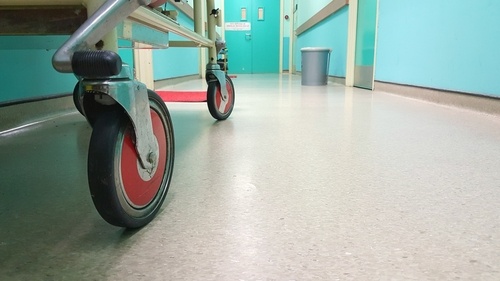 Joan Mckibben is administrator and director of nursing for Ambulatory Surgery Center of Somerset in Bridgewater, N.J.
Joan Mckibben is administrator and director of nursing for Ambulatory Surgery Center of Somerset in Bridgewater, N.J.
Q: What do think are the greatest clinical benefits of an EMR from an ASC physicians' standpoint?
Joan Mckibben: From a clinician's standpoint, an EMR provides a complete picture of the patient. Everything is easily retrievable and legible. All of the information a physician needs about a patient and their schedule is right at their fingertips.
Q: If a physician wasn’t using an EMR, what would they need to do to learn all of the necessary information about patients and the schedule?
JM: They would have to use paper charts. But in our ASC, we don't have enough storage space to even consider the option of storing paper charts.
With an EMR, physicians can look at patient records from any computer terminal in the ASC. Our physicians also have the ability to remote connect to our EMR from their office so they can actually remotely view records and data. They don't have to come over to the ASC to retrieve a chart; that's a significant convenience factor.
Additionally, with an EMR, everything needed to properly and effectively treat the patient is right in the system. Physicians don't miss anything. The blood work is there, as are medications, height, weight, allergies — all of the pertinent information is right there.
In AmkaiCharts, the system requires the nurses to chart certain areas, and they can't sign out of the EMR without charting these areas. This ensures the chart has the information the physician needs to ensure patient safety. It's always a complete record.
Q: What do you think are the greatest financial benefits from an ASC physician owner's standpoint?
JM: There are a ton of benefits. It allows patient tracking, benchmarking, running financial reports. It allows me, as administrator, to run volume reports and let the physicians know what their volume is by month, quarter or year.
We didn't start out running our billing through AmkaiSolutions, but we added AmkaiOffice about 18 months ago. Now the financial pieces of the billing are in the AmkaiSolutions systems, so I can do cost-case analysis and easily present the data at the board meeting. I can tell the board how much supplies cost. I can tell them what the volume is of supplies on hand. I can prepare the reports in an executive summary and give them a complete overview of the financial performance of the center, and then drill down where we want to. They need to know this information to keep a pulse on their financial business.
Q: What decisions does this information enable you and the physicians to make?
JM: After we drill down, we can identify the most financially appropriate cases to perform at the center or can look at certain insurance providers to decide whether we want to continue to carry that provider.
We also use the data to judge new business. It gives us benchmarking that we can use to project whether or not to bring in new surgeons to the center.
Q: For physician-owners of an ASC without an EMR, why else do you think they should consider investing in the technology for their surgery center?
JM: An EMR makes everything so much more convenient. It really helps make the people that work in the center more efficient. When your staff is efficient, you save money.
It also helps with providing quality care. I can do my QA in my office at 10:00 at night. There's no need to dig through charts.
The scheduling component of the EMR is amazing. I can email the schedule out to our physicians, and that's a great convenience for them. It's a HIPAA-compliant system; you can hide the patient names. The EMR allows me to send them their schedule so they know where to be, when to be.















